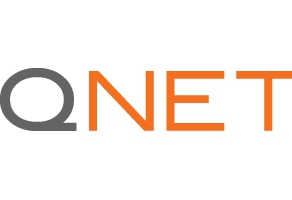
The promise for wealth accumulation and financial freedom has caused many people to investigate a variety of entrepreneurial prospects in Nigeria. However, this goal has also left people vulnerable to scams, such as those connected to Qnet. In Nigeria, Qnet, a multinational direct selling organization, has been charged with engaging in fraudulent operations while posing as real network marketing. This page explains how Nigerians fall victim to Qnet scams, pointing up warning signs, typical strategies, and safeguards against gullible people.
The Mechanisms of Nigerian Qnet Scams
1. Inauthentic Claims of Immediate Wealth
Qnet salespeople frequently entice people by guaranteeing large money gains with little work. They minimize the hazards, but stress that there is an initial commitment required to join the network. The claim that victims might make millions of naira in a matter of months is frequently untrue.
2. Pressure on Recruitment
Qnet-affiliated scammers mostly rely on recruiting to keep their network going. Following the payment of the registration fee, participants are urged to encourage others to sign up. Instead than focusing on product sales, the focus on attracting new members is similar to a pyramid scheme, in which money moves up from the base to the top.
3. High registration costs
In order to join, people must pay a hefty registration fee, which frequently ranges from ₦400,000 to₦700,000. The victims are informed that this cost includes access to the company’s platform, training materials, and beginning kits. However, participants are left in debt since the promised profits seldom ever materialize.
4. Focusing on Vulnerable Populations In Nigeria, university students, young people without jobs, and low-income individuals in dire need of financial breakthroughs are frequently the targets of Qnet scams. Scammers take advantage of their weakness by presenting what appears to be a genuine chance to get out of poverty.
5. Product Misrepresentation Representatives of Qnet usually overstate the advantages of the company’s goods, including trip packages or health supplements. According to some victims, it is hard to resale the items and get their money back since they are either too expensive or of poor quality.
6. Use of Influential Recruiters Scammers often involve influential figures, such as friends, relatives, or local leaders, to build trust and credibility. These individuals unknowingly or in some cases knowingly convince others to join, perpetuating the scam.
7. Lack of Transparency
Victims report a lack of transparency regarding how earnings are calculated or how the business operates. Many participants only realize the unsustainable nature of the scheme after they fail to recoup their initial investment.
6. Employing Powerful Hiring Managers Scammers frequently use powerful people, such friends, family, or local authorities, to establish credibility and trust. By unintentionally or intentionally persuading others to join, these people help the hoax continue.
7. Absence of Openness Victims complain about a lack of openness in the company’s operations or earnings calculation. Many participants don’t understand the strategy is unsustainable until they can’t get their money back.
What Makes Nigeria a Hotbed for Qnet Scams
Qnet scams in Nigeria are successful for a number of reasons:
1. High unemployment rate: Due to a shortage of work options, Nigerians are more inclined to investigate supposedly promising business projects.
2. Limited Financial Literacy: People are easy targets since many people don’t know the difference between multilevel marketing and pyramid scams.
3. Trust in Personal Networks: People victims know and trust are frequently the ones who recruit them, which lessens their suspicion.
4. Weak Regulatory Enforcement: Pyramid schemes can flourish because laws prohibiting them are not strictly enforced.
Red Flags to Look Out For
This is a warning indicator if a corporation prioritizes hiring above selling goods.
1. Exorbitant Upfront costs: Reputable companies don’t charge outrageous entry costs.
2. Unrealistic Income Promises: Be cautious of companies that make extravagant claims about their rapid and substantial profits.
3. Lack of a Clear Product Value: Expensive or superfluous goods or services should cause worry.
How to Keep Yourself Safe
1. Do a lot of research: Before making an investment, research any business idea. Check for reports and reviews online.
2. Check for Legitimacy: Verify whether the business is registered with the Corporate Affairs Commission (CAC) of Nigeria.
3. Consult a Professional: Before making any investments, speak with professionals or financial counselors.
4. Report Any Questionable Activities: If you think there may be a fraud, report it to the Economic and Financial Crimes Commission (EFCC).
Conclusion
Nigerian Qnet scammers profit from deceit, desperation, and the promise of quick cash. People may prevent themselves and others from being victims of these scams by being aware of how they work. It’s important to stay alert, carry out in-depth research, and warn people about the dangers of schemes that seem too good to be true. Even if there are genuine multi level marketing prospects, it is crucial to proceed with care before spending time or money due to Qnet’s contentious business methods.
Have you or a loved one fallen victim to a Nigerian Qnet scam? Talk about your experiences to keep others informed. Together, let’s fight financial fraud.
